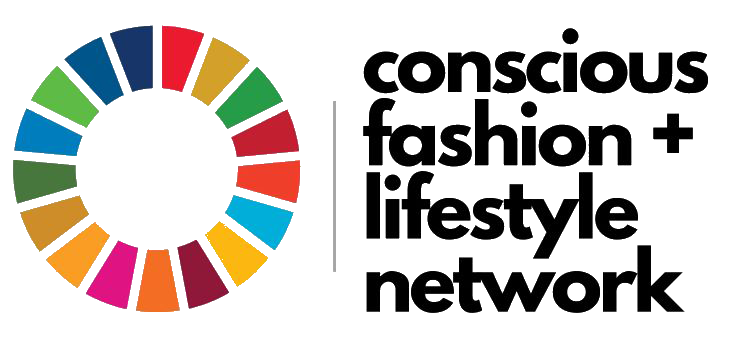Vote with your feet: help end captive wildlife in ‘entertainment’
Don’t attend ‘entertainment’ involving captive wildlife such as elephants, tigers and dolphins was the clear message from experts during a webinar co-organised by ACTAsia.
Consumers were urged to educate themselves and others about the misery and suffering endured by wild animals kept in captivity for the entertainment of humans, for example circuses and dolphin shows.
Pei Su, founder and CEO of ACTAsia, said: “It’s essential that people understand and learn that behind the spotlight, behind the music and dancing, the reality is that animals are living terrible lives because they’re being used by us for entertainment.”
Renowned experts from around the world took part in the groundbreaking webinar which was organised by the International Conservation and Biodiversity Team, Biodiversity MAG and ACTAsia with support from IUCN SSC Asian Elephant Specialist Group and the China Biodiversity Conservation and Green Development Foundation.
The panel was also unified in its urgent call for an end to the use of captive wild animals in entertainment across the world, with several experts expressing concerns about elephant welfare in particular.


Elephants suffer mentally and physically in captivity
These intelligent and social animals are frequently used in processions and to give rides to tourists. They’re also kept in lonely, cramped conditions with little or no enrichment which can cause significant stress.
Dr Sara Platto, a vet and professor of animal behaviour and animal welfare at Jianghan University, China, described how this can have long-term detrimental effects that can affect the way elephants interact with their environment.
“Long term stress causes a reduction of the right brain activation, leading the individual to violent behaviour and lack of social awareness, which can be recognised as post-traumatic stress disorder (PTSD),” she said.
“PTSD transmits across generations socially and neurobiologically and causes lifelong mental and physical health issues.”


“Our words do not reflect our actions”
Nikita Dhawan, founder of Youth for Animals and youth ambassador at the Born Free Foundation is based in New Delhi, India.
She told the webinar she was surprised to discover how elephants continue to be treated in India, especially considering their significant cultural importance.
“I came across a process that’s called ‘the crush’. Elephants are chained and constantly beaten for 72 hours in order to break their spirit,” she said.
“We continue to sugarcoat our supposed adoration and respect for elephants in India, yet it is ironic that our words do not reflect our actions.”
Dr Manori Gunawardane, Sri Lanka representative for the Born Free Foundation, agreed that captive elephants are suffering from PTSD due to poor treatment and living conditions.
“When people think that riding an elephant is a fun thing to do, they’re doing it out of ignorance, not understanding the stress the animal is under,” she said.
“I think back to the time when we were all in lockdown – our lifestyles were curtailed for a long time. I would reflect on that every time you see a captive elephant.”
Founder and CEO of Elephant Care Unchained Steve Koyle travels the world in order to care for elephants’ wellbeing, including facility design and specialised footcare.
He described a situation that he found a temple elephant in, where visitors paid money and the elephant would touch them on the head as a blessing.
“This five second blessing is a lifetime of misery and suffering for this elephant – all just to make us feel good.”
Lawyer and founder of the Cambodia Wildlife Sanctuary David B Casselman, who has represented many animal-related causes in court pro bono, echoed the panel’s concerns and shared a judge’s comments about the suffering of an elephant at a zoo in the USA.


Dolphins and whales in captivity: “abnormal, damaging and cruel”
Along with elephants, whales and dolphins rank amongst the most intelligent and social animals in the world.
They have extremely complex – often lifelong – social relationships with immediate and extended family members, as well as ‘friendships’ with many others.
Rob Laidlaw, a biologist and founder of Zoo Check, told the panel and audience that the artificial social groupings of cetaceans in captivity and the routine isolation of a few animals is “abnormal, damaging and cruel.”
“All over the world, everybody who’s concerned has to push for progressive laws that positively impact whales and dolphins in captivity and in the wild – both to prevent new whales coming into captivity and to try to get rid of captivity.”


Cruel training practices in circuses
The use of wild animals in circuses is being phased out in many countries, but Pei Su expressed concern that, despite this, the number of travelling circuses is increasing in China.
Circus animals are commonly kept in small trailers which don’t adequately provide for their needs, and training methods are often cruel.
Muriel Arnal, founding president of One Voice, said: “Circuses are places of cruelty. For example, the trainers will beat the tigers until they go through the circle of fire.
“Tigers are extremely afraid of fire. Therefore, they have to be more afraid of the trainer than they are of the deadly fire.”



Wild animals deserve respect and compassion
Will Travers, president of the Born Free Foundation, described an incident he still remembers vividly from when he visited a zoo as a child.
He saw a polar bear repeatedly walking from one side of an enclosure to the other, spinning on its back legs. Other visitors said they thought the bear was “performing a dance” for them.
“The bear was not dancing – the bear was mad,” he said.
“He was insane because he was being kept in captivity and had created an alternative world in his head – just like happens with many humans who’ve suffered some kind of extreme trauma.
“Now the tide of history is flowing in only one direction. The more we understand about wild animals as individuals – the more we recognise them as sentient beings – the less tenable it is for us to treat them as things.”
Please join us in being compassionate consumers and travellers.
Before you take an elephant ride, swim with dolphins, watch animal performances or take selfies with wildlife, check the information on how these animals are treated – and if you’re not sure, don’t do it.
We agree that it’s incumbent on each and every one of us to treat these beautiful, intelligent animals with the respect and compassion they deserve.
We would like to thank Laurent Dingli, founder of the International Conservation and Diversity Team, who set the wheels for this webinar in motion, and Heidi Riddle, vice chair of the IUCN Asian Elephant Specialist Group who moderated the discussion.
ACTAsia relies on donations in order to continue its vital education programme teaching children in Asia to show compassion and empathy to animals. If you would like to support us, you can donate via the website.
![ACTAsia [logo]](https://www.actasia.org/wp-content/themes/ACTAsia-2022-theme/assets/img/actasia-en-colour.svg)



